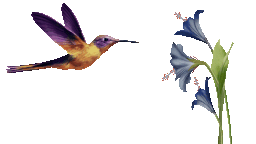
As I stepped into the garden to sweep, my cat was curiously staring at something. As I looked closer, it was a fluffy, delicate-looking moorhen chick in front of him.
He must have picked it up by the stream, as there’s no way for a moorhen chick to get into the garden on its own.

I hurriedly scooped it up while I told my cat off, and he lay down with his feet up submissively and knew he had done something.
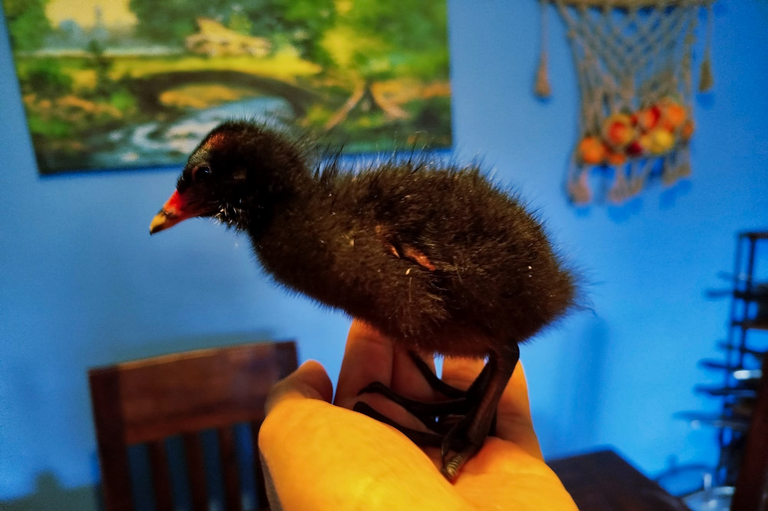
I took the moorhen chick into the kitchen with my cats not there, so I could check the chick to see if it was hurt.
Thankfully, it was not.
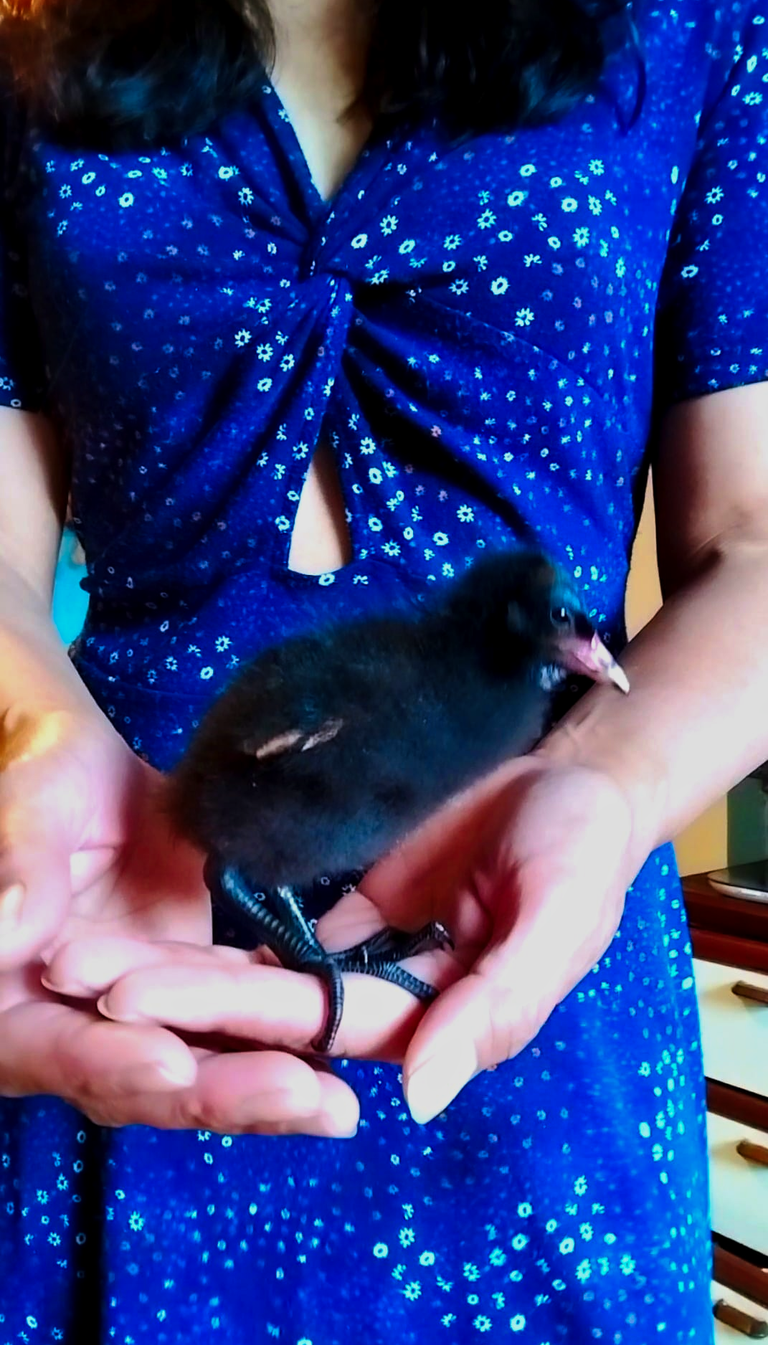
I was impressed by how relaxed this little one was with me indoors.
Moorhens in England are small water birds often seen around ponds, streams, and lakes. They have dark feathers, a red beak with a yellow tip, and long greenish legs with big toes that help them walk on plants in the water. They are not ducks, but they can swim well and also climb. Moorhens make nests in reeds near the water and lay their eggs there. Their chicks are black and fluffy with bald heads and big feet. Moorhens can be noisy and sometimes fight to protect their space. They live in both the countryside and towns. The name "moorhen" means "marsh hen," because they like living near water.

Since moorhens like water, I turned on the tap so it could hear the sound of running water, and it wiggled its little bony wings in response, cleaned itself, and snuggled in my hands.

After a few minutes of relaxation, it started climbing on me with its oversized feet, then hid in my hair and gently pecked me with its red-patched beak. It shook its little bald head, and I was falling in love with this sweet creature. I wanted to keep it.
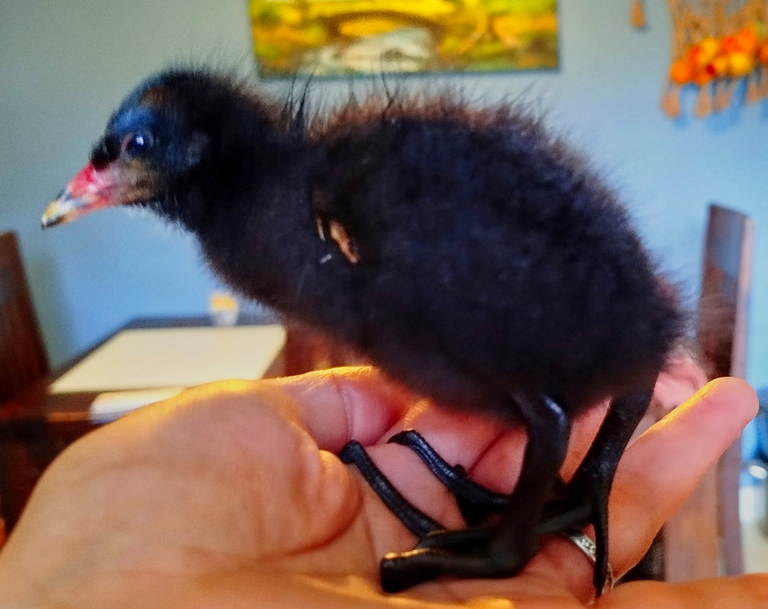
Part of me dreamed of keeping it, imagining it growing up, becoming friends with my cats, and having a little paddling pool or even a pond in the garden just for it.

As it felt so cold, I kept it warm for a while and offered it some egg yolk, and it ate. That gave me hope that it would survive. I was very tempted to keep it as a pet.

But knowing I have two cats made things tricky. So I decided to see if I could find its family, but moorhens are known to kill their own chicks to reduce large broods, which made me hesitant to look for the mother.
I was in a dilemma. I took the chick outside to see if it would respond to its mother’s calls, but it didn’t.

Knowing moorhens live by streams, I walked to the nearby woodland where the stream flows to see how the chick would respond.
As we got closer to the sound of water, it began chirping with excitement.
Just a few steps from the stream, it jumped from my hands and landed on its back, but it quickly wiggled itself upright.
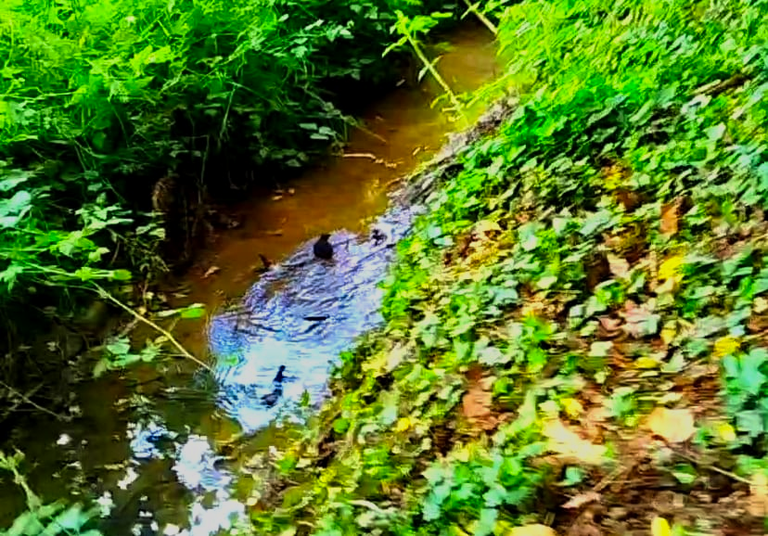
As soon as it was on its feet, it ran very fast toward the water, and once it reached the stream, it swam even faster upstream. I was impressed at how quick it was. I was so happy, knowing it was safe and very capable of surviving. It was the best decision to let it go.
Sometimes we underestimate how well these little ones can thrive in the wild. Keeping them as pets can feel cruel and unfair, no matter how much we dream of having a little moorhen companion in the garden. No matter how tempting, letting go is good.
Maybe one day, I’ll see it again by the stream and it will recognise me.
Have a lovely day!
Mariah 🦆🐥💕



